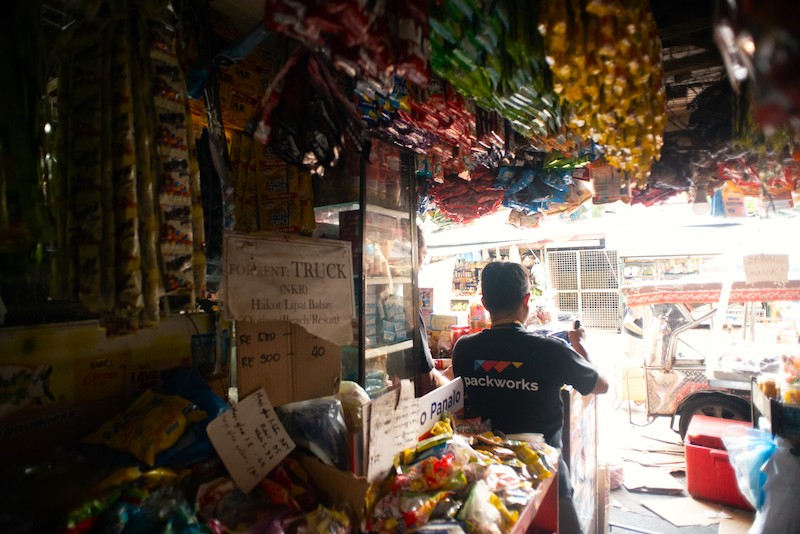MANILA, Philippines — Sari-sari stores are rapidly digitalizing their operations, driven by a significant increase in e-wallet use, according to a new report from Filipino tech startup Packworks.
The report used their internal transaction records as the starting point to conduct a direct survey of more than 2,000 sari-sari store owners within Packworks’ nationwide network of 300,000+ stores from January to August 2025.
According to the data, half of the store owners surveyed reported a 75% increase in e-wallet usage in their store operations between January and August. The remaining respondents also saw substantial growth: 20% experienced a 100% increase in usage, another 20% saw a 50% increase, and 10% reported a 10% rise.
Store owners largely attribute this growing adoption to increased consumer demand, as their customers are also turning to e-wallets to buy goods, access funds, and settle bills at their local stores.
“Maraming nang nagpapa-cash-in at cash-out at bumibili gamit ang mga e-wallet. Dahil dumarami, gusto namin masabayan ang pangangailangan nila. Nakakatulong din naman ito sa amin para magkaroon kami ng dagdag kita (A lot of our customers are making cash-in and cash-out transactions aside from buying products with e-wallets. Since more customers are using them, we want to keep up with their needs. It also helps us earn a little extra),” said Marijane Rea, a sari-sari store owner from Laguna.
Store owners are using e-wallets for a variety of business operations. About 40% use the platforms for in-store payments, 30% for bill payments, and the remaining 30% for cash-in and cash-out transactions.
This digital shift is quickly becoming a critical source of revenue. Around 13% of store owners say their e-wallet earnings equal their revenue from physical goods. Among the rest of the respondents, e-wallets still contribute significantly: 66% say that about 20% of their revenues come from e-wallet use, and the remaining 21% say their e-wallet earnings account for 10% of their total revenue.
GCash and Maya are the widely used e-wallets, with 85% of store owners reporting using GCash for their business transactions and 15% using Maya.
“Bukod sa kita namin sa tindahan, nagkaroon kami ng dagdag kita sa paggamit sa mga e-wallet kasi meron kaming tubo na PHP 10 hanggang PHP 20 sa pag-cash-in at cash-out, o di kaya tuwing nagbabayad ng kuryente, tubig, o Internet ang mga customer (Besides the income we earn from the store, we also get extra earnings from using e-wallets because we earn a profit of PHP 10 to PHP 20 from cash-in and cash-out transactions, or whenever customers pay for electricity, water, or internet bills),” said Rachel Miguel, a store owner from Bacolod.

To increase their transaction capacity and meet surging customer demand, sari-sari stores are strategically using up to five e-wallet accounts. According to the report, with each account having a monthly limit of PHP 100,000 to PHP 500,000, the combined monthly transaction capacity is up to PHP 3.5 million.
This trend supports the 30% of store owners’ interest in upgrading their e-wallets to business accounts to maintain a higher monthly limit of PHP 1 million.
Data from the Bangko Sentral ng Pilipinas indicated that approximately 57% of total retail transactions were cashless in 2024, highlighting the increasing use of digital payments for everyday purchases and financial transactions.
Packworks Chief Platform Officer Hubert Yap highlights that sari-sari stores are rapidly embracing digital tools such as e-wallets to diversify their services and grow their businesses.
“The surge in e-wallet use proves that sari-sari stores are rapidly evolving into vital digital hubs for their communities. Aside from simply selling ‘tingi’ physical items, they are now diversifying their product range, offering high-margin, value-added financial services and integrating digital tools such as our app to fundamentally improve their operations and function as near-frictionless nano-banks for the neighborhoods they serve. These findings show that sari-sari stores have been at the forefront leading this digital transformation at the grassroots level,” cited Yap, “And there’s an urgent need to support these micro-entrepreneurs with the right fintech to ensure they can fully capitalize on this opportunity, as they often say in sari-stores, a peso saved is a peso earned!”



![PR PHOTO 1- [PRESS RELEASE] E-wallet use jumps 75% in sari-sari stores, fueling digital transformation – Packworks report](https://www.mindanaotimes.com.ph/wp-content/uploads/2025/10/PR-PHOTO-1-PRESS-RELEASE-E-wallet-use-jumps-75-in-sari-sari-stores-fueling-digital-transformation-Packworks-report-1170x877.jpeg)